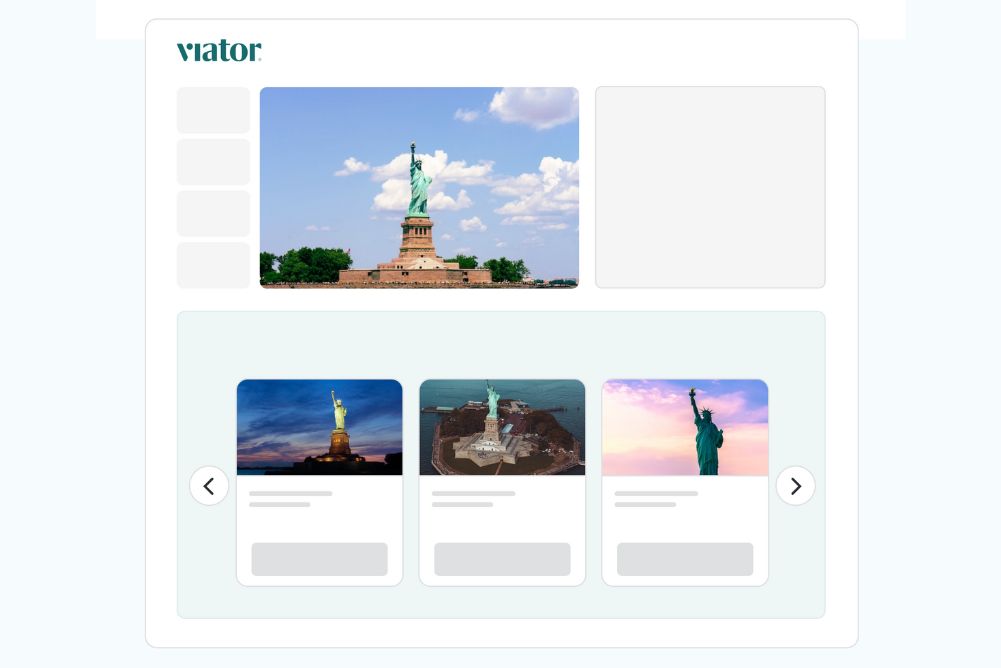1. Look the Part | 2. Preparation | 3. Dive Briefings | 4. Show You Care | 5. Train Your Staff
This post is a collaboration with Divers Alert Network (DAN) to provide dive operators with tips they can use to build a safe business that leaves divers satisfied. Follow these tips to delight your customers and have them leaving great reviews.
The best dive is always the next dive. A lot of divers are familiar with the phrase, and some really live by it. For those who love to breathe underwater, the next dive adventure is something to be looked forward to for months or even years. Many divers plan their trips religiously, and those who have the means spend small fortunes to explore pristine marine environments.
As the world’s leading dive safety organization, Divers Alert Network (DAN) is committed to the safety of divers—and dive instructors—around the world. This drives their mission to create programs and resources to help dive businesses run safe operations. If you’re a diving, snorkeling, or any water-based tour operator, you know how crucial safety is. Making your customers feel secure and welcome sets the stage for an epic adventure free from worry or angst.
When divers find operations they feel comfortable with, they don’t keep that information to themselves—they spread the word! In the form of great reviews, word of mouth, and with their fellow diving network. This could mean not only repeat business from them (after all, locals may be an equally important segment to your business as tourists)—but also more bookings due to the positive reviews they leave on your listing.
If you want to build your business’s reputation for safe operations and keep divers coming back, start with these five tips.
1. Look the Part
Customers often gauge the safety of a dive business with just one look. Your dive center and boat don’t have to look like they were pulled from Coastal Living magazine, but with just a few simple steps you can convey an instant feeling of safety and trustworthiness.
Maintain standard operating procedures that ensure cleanliness and safety
Start by keeping things clean, neat, and free of hazards. Making time to organize your facilities and equipment suggests your staff has good attention to detail in everything they do.
Checklists and standard operating procedures (SOPs) are commonplace in diving operations, so be sure to use them in the course of maintaining your facility. An SOP manual is a book of formalized checklists that keep you from missing any steps in maintaining the equipment and facilities your dive center relies on. SOPs can be created for things such as keeping the dive store in order, maintaining boats, gear storage, dock maintenance, equipment servicing, pool cleaning, and more. Your SOP manual can even include emergency action plans (EAPs), cylinder inspections, MSDS sheets, fill station checklists, fire prevention plans and more.
When customers see that you have detailed plans to mitigate risks in your dive center, they will note your preparedness and commitment to providing safe experiences.
When crafting your SOPs, follow the guidelines of organizations such as OSHA, the U.S. Coast Guard, the Compressed Gas Association, training agencies, and your local government. Following applicable standards will help you not only look the part, but also actually run a safe operation.
2. Prepare Guests for Success Before They Arrive
Preparing your guests for success ahead of time isn’t hard, and doing so allows you to prove that you prioritize their enjoyment. One easy way to prepare your guests is to distribute a pre-trip information packet. Giving travelers this information ahead of time reduces work that needs to be done when they arrive and gets everyone on the same page.
Provide guests beforehand with all the information they will need to have a great dive
In your pre-trip information packet, include all required paperwork such as waivers and medical forms that your dive center requires. This enables divers to collect all the documentation and medical approvals they need before they even book their travel, and it shows that your dive operation is transparent, organized, and safety-conscious.
Following your “necessary documents” sections, include descriptions of what your guest divers are likely to see. This gets divers excited about the trip and enables them to mentally and physically prepare for the conditions you operate in. This information also gives guests the foresight and time to complete any specialized training they need before diving with you.
Once guests know what they’ll be seeing and doing, tell them what to bring so they come prepared with everything they need before, during, and after diving. If you provide rental equipment, this is a great opportunity to remind customers that they can rent everything they don’t already have from you, so be sure to include your rental policies and pricing.
Share important details about traveling to your location
Next, include a section that covers travel details. This can prove to be the most important section of a pre-trip information packet. Be sure to tell guests whether they need certain vaccinations, documentation such as passports or visas and, if you choose to, recommend travel insurance (DAN offers per-trip and annual travel insurance plans at affordable rates designed with divers in mind). Additionally, alert them of any baggage restrictions with small, regional aircraft or pertinent travel advisories for your area. If you want to go the extra mile, give them ideas about where to stay and where to eat once they arrive.
Give post-dive tips/recommendations
To help your guests plan safe travel to and from your dive center, include a schedule, sample itinerary and the recommendations from DAN’s Flying After Diving Guidelines. Explicitly tell your guests to build in enough time to arrive rested and stress-free at your dive center and leave enough time at the end of their trip to avoid any risk of decompression sickness caused by flying too soon after diving. This shows your guests that you prioritize their safety, it keeps your customers happy and healthy, and it is an effective risk mitigation intervention that takes almost no time to implement.
Provide the option for peace-of-mind with insurance
In addition to helping guests with their travel planning, it is also wise to consider recommending DAN Dive Accident Insurance (some dive centers require all their customers to have DAN insurance before they arrive). If you are worried that recommending dive accident insurance will deter customers, think about things this way: Recommending dive accident insurance shows that you recognize scuba diving is an inherently risky activity, but that you have enough concern for your customers’ well-being that you want them to be covered in the event an accident occurs despite everyone’s best efforts to prevent it.
Bonus: After demonstrating your care for the customer and giving them the details about how to prepare for the dive excursion they’ve booked, show them what other trips or extra accommodations you offer. People like upgrades and may even decide to book a return dive trip before their first dive with you.
3. Talk the Talk: Give Effective Dive Briefings
After your divers have arrived, one of the first and best opportunities to make a good impression on guests arises during the first dive briefing. Dive briefings set the tone for your dive, and an effective briefing can be one of your most valuable tools.
In a typical dive briefing you’ll introduce the dive site, discuss the dive plan and points of interest, and make divers aware of any hazards they may face during the upcoming dive. When you warn them of the hazards, remind them that they can do a lot on their own to prevent incidents or accidents, assure them that you and your team are there, and that you have an EAP in place if something were to go wrong. Be sure to point out any safety equipment you have as well. Reminding guests that your team has an EAP and showing them that you have the proper lifesaving equipment to respond will reassure any nervous guests and show everyone else that you are committed to safety.
A thoughtful, informative, and entertaining briefing grabs attention
When you create a briefing, make sure it includes the pertinent information, of course, but don’t necessarily bombard your customers with too much information. No matter how excellent the content you include in your briefing, a poor delivery can completely negate that. Practice giving the briefing ahead of time; be sure that you are emphasizing fun as much as you are emphasizing safety. Avoid any pitfalls like glossing over important details or explaining something half-correctly. Keeping things entertaining with a well-executed delivery will prompt active listening.
When divers actively listen to briefings, they can appreciate your attention to detail and commitment to safety. They’ll be more likely to take your directions to heart and stay safe during their dives. Refined dive briefings are crucial to creating a pleasant diving experience for everyone involved, and divers who go into dives prepared are more likely to surface with smiles on their faces and tell their friends about their experience.
4. Show Guests You Care
Showing your guests that you care about their well-being not only makes them enjoy their experience, it makes their experience safer. Here are a few easy steps you can take to accomplish this throughout their trip.
Be friendly, accessible, and helpful
Start by learning your guests’ names. People feel especially cared for if you can acknowledge them by name, and in an emergency, knowing names can prevent further chaos and make it easy for you to determine that everyone is accounted for.
Next, offer to help guests every step of the way. Assist divers onto and off of the boat and into and out of the water, and help them don and remove their gear. Additionally, encourage them to ask you questions and/or for help. You do not have to offer a full valet diving experience to your guests to make them feel well taken care of—little things like handing a camera down or having guests give your staff their fins before a ladder exit all make them feel safe (and actually help keep them safe).
Communication is key for establishing trust, building rapport, and getting great reviews
Another way to show divers you care is to check in with them before, during, and after dives. When you’re guiding a group, quickly confirm that everyone is still ready right before you splash. Divers notice when their dive guides are attentive, so ask them if they’re ok underwater, keep tabs on their air supply, and make it apparent that you are watching out for them. Intermittent communication shows your divers you are concerned for their safety and demonstrates that you are there to help them solve problems if necessary.
Back on the surface, strike up a conversation: Ask your divers how it went, then address any concerns they have or join in celebrating the awesome dive. Unfortunately, not all dives are great dives, and if your guests have a bad experience on a dive, they may become upset or even irate. If this is because of something that happened on the dive, a quick conversation may solve the problem and bring some comfort to the guest. Other times it has nothing to do with anything you did or anything that happened on the dive, and is due to circumstances out of your control. Have a plan in place for—and practice—dealing with these situations. If you handle these guests well they might end up giving you the best reviews, even if they appear dissatisfied. Responding to an upset guest with grace also shows the rest of your guests that you have the composure of a competent dive leader.
A little bit of extra attention can go a long way
Making post-dive conversation allows you to monitor your guests for any signs of diving injuries. Signs and symptoms of ear barotrauma or decompression illness often appear very soon after dives and may be detectable during a simple conversation. Talking with your divers also gives you the opportunity to reinforce safe practices.
Reminding guests to drink water, dry off, take their weights out of their weight pockets during transit, or step out of the sun can go a long way to preventing injuries or damage to equipment (yours or theirs). No matter how pleasant your tone is, remember that verbal reminders only go so far, so it is essential to lead by example and constantly model safe practices.
If you want to go the extra mile to show guests you care about their safety and comfort, provide amenities such as snacks, towels, warm drinks, or hot showers. Guests will definitely remember these amenities and include references to them in their reviews.
5. Train Your Staff and Treat Them Well
Properly training your staff is a must for any diving operation. Well-trained staff, who also feel valued and well-treated, will deliver the best experience to your customers.
Encourage staff to go above and beyond in their training and certification
When it comes to dive training, it is almost impossible to have too much. At a minimum, all staff working for a dive operation should have CPR and first aid certifications and be trained to administer emergency oxygen in addition to maintaining their respective dive credentials. Bare minimums are not the goal, though; encourage your staff to continue their education, and facilitate this process. Train your staff extensively on all operation-specific tasks, and do regular drills to help instill and maintain the skills you teach.
With suitable and continually updated training, your employees will be better at their jobs, and your customers will not just notice their expertise but be impressed by it. Feeling confident enough to intervene in any emergency situation enables your staff members to act swiftly—which can save lives.
Treat your staff well and they’ll make customers feel like family
In addition to training your staff, you need to treat them well. Happy and healthy staff members make for happy and healthy customers. If your staff feel confident that you support them and they love what they do, it is almost guaranteed that they will offer better experiences to guests. They are also much more likely to keep your divers safe because they’ll be more attentive and better able to perform and respond. This means injuries and accidents will be prevented, but if an accident occurs despite everyone’s best efforts to prevent it, your team will be able to step in and act without hesitating.
Customers are much more likely to recommend and return to dive with an operation that treats its staff well. A few ways to go above and beyond in caring for your staff may include offering benefits, covering the cost of their DAN dive accident insurance and professional liability insurance, providing plenty of continuing education opportunities, subsidizing their training, and more.










